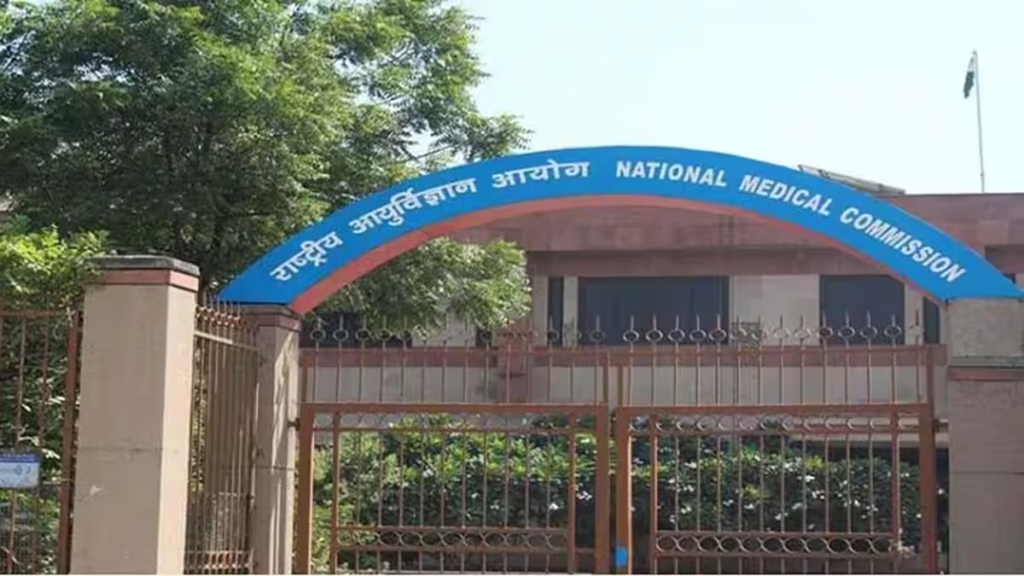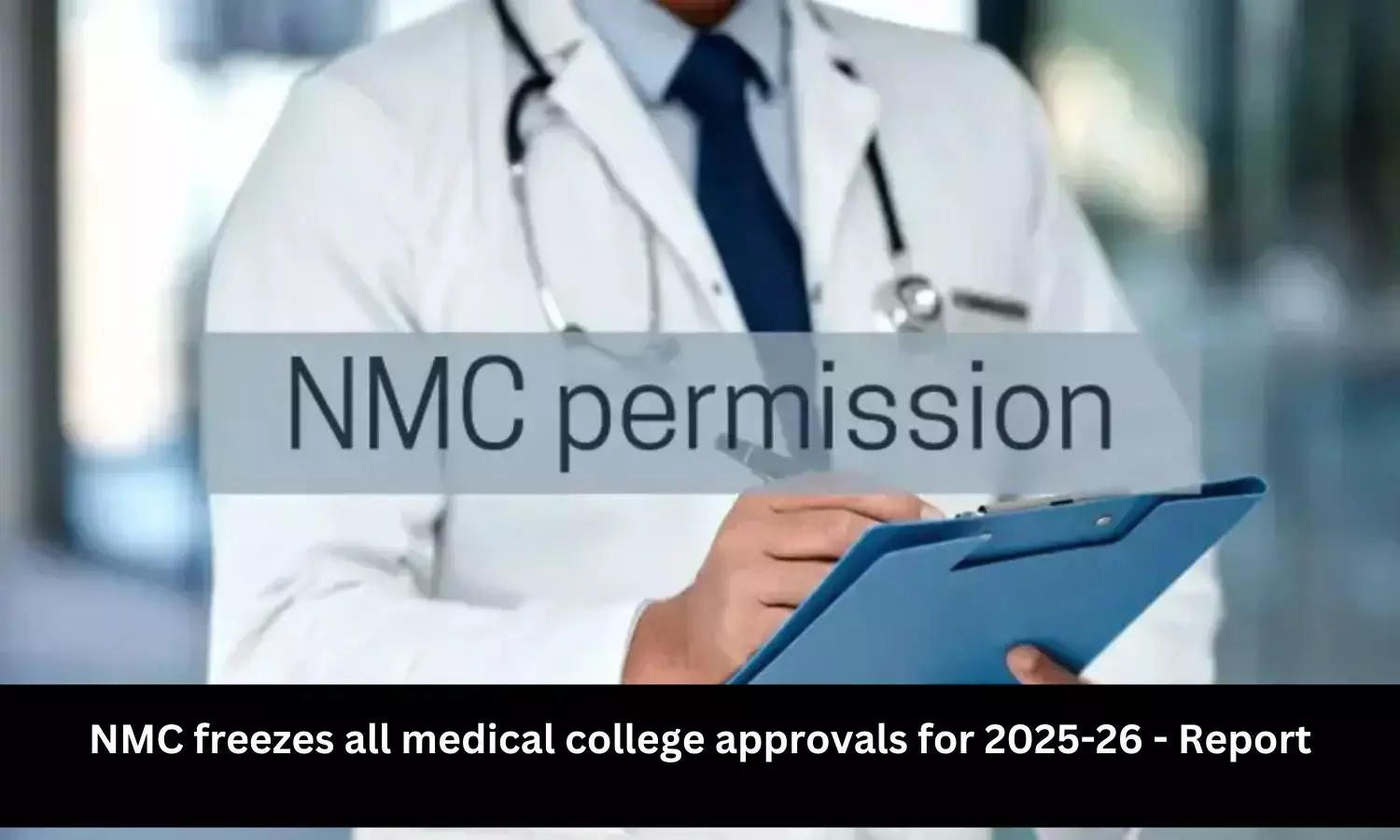Introduction: Understanding the NMC Freeze Decision Controversy
In recent times, the NMC freeze decision has become a hot topic among students, educators, and policymakers alike. With increasing demand for medical education across India, the question of whether the National Medical Commission (NMC) has put a freeze on approvals for new medical colleges or increasing student seats has stirred quite a debate.

Just recently, the government addressed this very issue in the Rajya Sabha, clarifying that no such decision has been taken by the NMC to freeze approvals or increase seats. This announcement is crucial as it shapes the future of medical education infrastructure and opportunities for thousands of aspiring doctors across the country.
In this blog, we will dive deep into the background of this controversy, analyze the government’s response, and discuss the implications of the NMC’s stance on medical education in India.
The Background: Why Was a Freeze on Medical College Approvals Even Considered?
The healthcare sector in India has been expanding rapidly. To tackle the doctor-patient ratio imbalance and growing healthcare demands, India has seen an increase in the number of medical colleges and seats in recent years.
However, concerns over the quality of medical education and infrastructure readiness have raised questions:
Many new medical colleges lack adequate infrastructure, faculty, and hospital facilities.
Some states report a shortage of qualified teaching staff, which impacts education quality.
Rapid increase in medical seats without quality checks could dilute the value of medical degrees.
Due to these issues, there was talk of the NMC imposing a freeze decision to halt approvals for new colleges and limit seat increases until quality benchmarks are met.
What the Government Said in Rajya Sabha
During a recent parliamentary session, questions were raised about the alleged freeze. The government clarified the situation, emphasizing:
The NMC has not implemented any freeze on approving new medical colleges.
There is no freeze on increasing the number of seats in existing colleges either.
The approval process is ongoing as per established norms.
The government remains committed to expanding medical education while ensuring quality standards.
This official clarification puts to rest rumors and provides much-needed transparency on the regulatory environment.
Why Is the NMC Freeze Decision Important?
For Students:
Admissions Impact: A freeze could reduce available seats, limiting opportunities for aspiring medical students.
Quality of Education: Without a freeze, students must be vigilant in selecting colleges accredited by NMC to ensure quality training.
For Institutions:
Planning and Investment: Colleges need clear policies to invest in infrastructure and faculty recruitment.
Growth Opportunities: With no freeze, medical colleges can continue to expand their capacity responsibly.
For Healthcare System:
Balanced Growth: The country needs more doctors, but not at the cost of compromised education quality.
Regulatory Oversight: Effective monitoring by NMC is essential to maintain standards.
Comparing NMC Freeze Decision with Past Regulatory Approaches
| Aspect | Earlier Scenario (MCI) | Current NMC Framework |
|---|---|---|
| Approval Transparency | Often opaque and delayed | More transparent and regulated |
| Freeze on Approvals | Occasional ad hoc freezes | No current freeze; continuous evaluation |
| Seat Increase Policies | Restrictive and inconsistent | Flexible but with quality checks |
| Focus on Quality Control | Limited enforcement | Strong emphasis on standards and audits |
| Institutional Support | Limited capacity building support | Initiatives to upgrade colleges |
Insights from Experts on the NMC Freeze Decision
Dr. Meera Joshi, Medical Education Specialist:
“The government’s statement reflects a balanced approach—expanding access to medical education while emphasizing quality assurance.”
Prof. Arvind Rao, Healthcare Policy Analyst:
“While expansion is necessary, the NMC must continue rigorous inspections to prevent substandard colleges from diluting medical education.”
The Road Ahead: What to Expect in Medical Education
With the NMC freeze decision officially clarified as “no freeze,” India’s medical education sector can expect:
Continued growth in the number of medical colleges and seats.
Strengthened quality control mechanisms to monitor infrastructure and faculty standards.
More emphasis on regional balance to increase access in underserved areas.
Potential policy refinements to avoid quality compromises while promoting growth.
Table: Key Facts About NMC Freeze Decision and Govt Clarification
| Topic | Current Status |
|---|---|
| Freeze on new medical college approvals | No freeze imposed |
| Freeze on seat increase | No freeze; approvals continue |
| Quality assurance by NMC | Ongoing and emphasized |
| Government stance | Supports expansion with quality control |
| Impact on students | More opportunities, but choose wisely |
Conclusion: Why the NMC Freeze Decision Matters for All Stakeholders

The NMC freeze decision controversy highlights the ongoing challenge in India’s medical education landscape: how to expand access without sacrificing quality. The government’s clear stance that no freeze is in place reassures students and institutions, but it also places the onus on NMC to enforce strict quality measures.
For aspiring doctors, this means opportunities remain open but demand careful selection of accredited institutions. For colleges, it means a green light to grow—responsibly.
Call to Action
What’s your take on the government’s clarification about the NMC freeze decision? Are you hopeful about increased medical seats or concerned about education quality? Share your thoughts in the comments!
Stay updated on medical education policies by subscribing to our newsletter. For more detailed analyses and updates, visit National Medical Commission’s official website.







